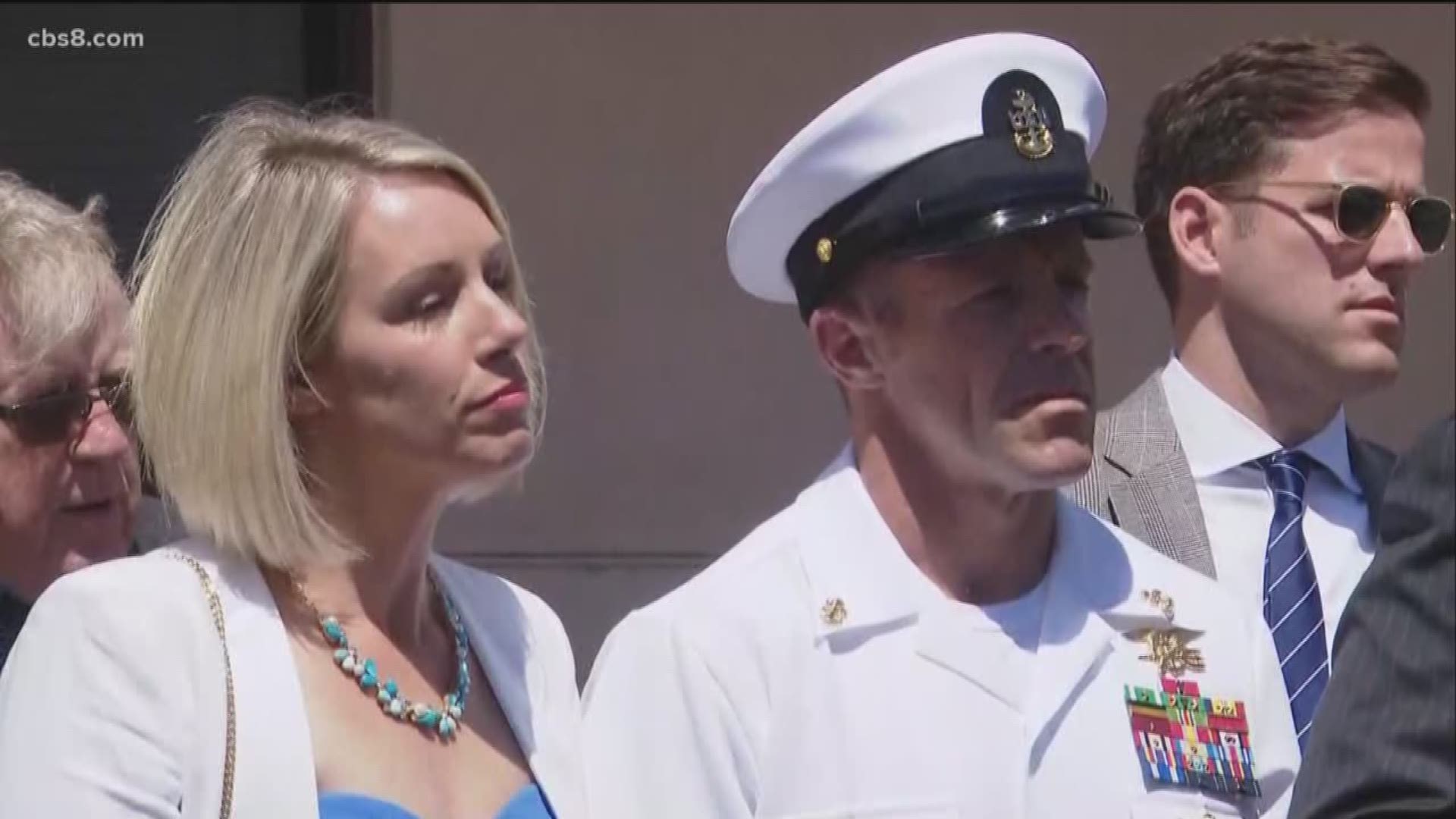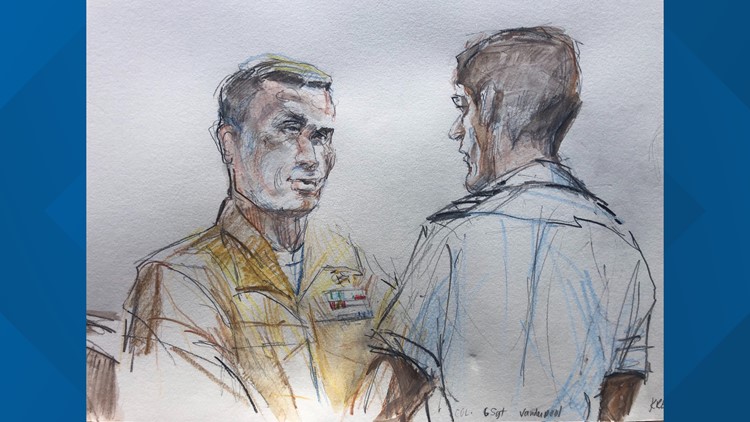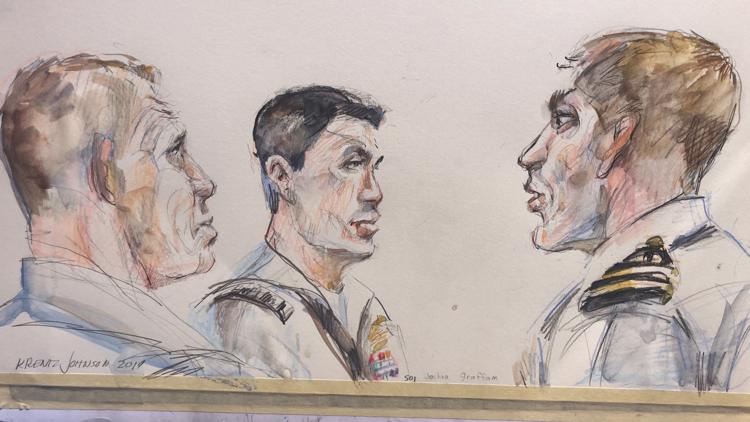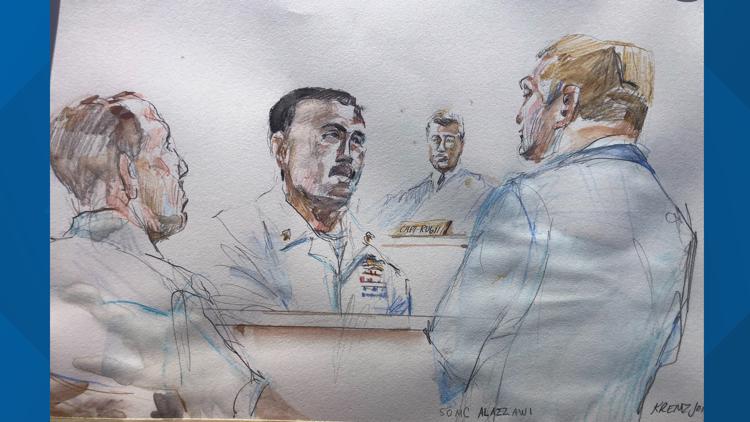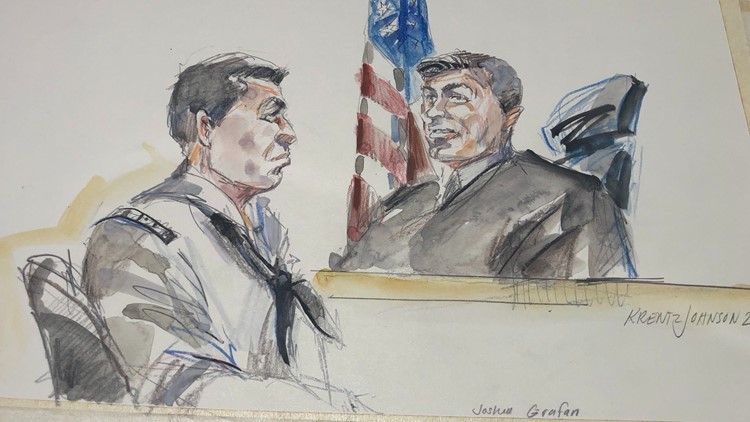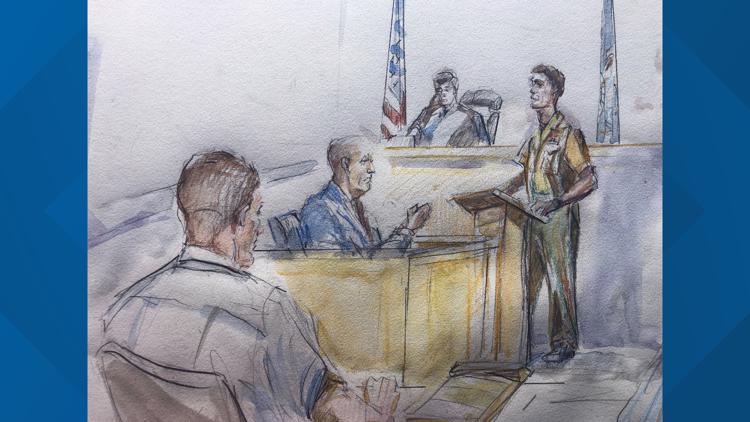SAN DIEGO — A witness who dropped stunning testimony at the war crimes trial of a decorated Navy SEAL by telling the court he had killed an Islamic State captive in Iraq in 2017 — not his accused platoon chief — could now face charges of perjury, according to the Navy.
The Navy's legal adviser to the commander overseeing the court-martial of Special Operations Chief Edward Gallagher notified the witness's lawyer, Brian Ferguson, in an email late Tuesday that the testimony Corey Scott gave last week could be used against him if he lied on the stand or gave a false statement.
Donald King said in the email that Scott's testimony directly contradicted "previous official statements — thus exposing him to prosecution — I feel compelled to ensure you understand this."
Cmdr. Tam Lawrence, Naval Special Warfare spokesperson, said Scott was granted immunity in exchange for the promise of truthful testimony.
"We are reviewing Petty Officer Scott's statements in light of his recent testimony but no decisions have been made," she said.
Scott testified under immunity that would protect him from prosecution for actions he described in his testimony.
Ferguson declined to comment.
The SEAL medic testified that he had killed the adolescent Islamic State captive in their care in Iraq in 2017 by plugging the militant's breathing tube with his thumb.
He said he did it after Gallagher unexpectedly stabbed the patient. Scott testified that he was taken aback by the stabbing but that he thought the teen would survive still so he asphyxiated him to prevent him from being tortured by Iraqi forces.
Courtroom sketches from Gallagher trial - 6/26/19
Prosecutors said Scott had never mentioned the asphyxiation in multiple conversations with them before the trial. Scott said they never asked him the cause of death.
Gallagher, 40, has pleaded not guilty to charges of murder and attempted murder for the stabbing of the prisoner and shooting of civilians in Iraq.
Defense lawyers called their first witnesses Wednesday.
Gallagher's superior, Master Chief Petty Officer Brian Alazzawi, testified that Gallagher and his platoon were considered "rock stars" after returning from the 2017 deployment to Iraq in which they aided Iraqi forces in ousting ISIS from Mosul.
But he noticed some platoon members seemed dejected despite the praise.
A month after they were back in San Diego, Alazzawi said Special Operator First Class Craig Miller told him that Gallagher had stabbed a prisoner during the deployment on May 3.
Miller told Alazzawi that he was coming forward because Gallagher was being promoted and nominated for a Silver Star.
Alazzawi said he trusted Miller and found the report credible. He told the troop commander but the alleged war crime wasn't reported outside SEAL team 7 until January 2018 — when Alazzawi got word that several SEALs had planned to go as high as the Navy commodore because nothing was being done.
Alazzawi did not explain why he and the troop commander had taken no action.
Defense lawyers contend that the accusations come from SEALs who offered tainted or even false testimony to oust a platoon chief they hated. They say there is no physical evidence to support the claims.
The government rested its case Tuesday after calling its last witness — a computer specialist who testified that Gallagher had texted a photo to a comrade in which he clutched the hair of the dead captive in one hand and a knife in the other.
The specialist also linked Gallagher to a text message sent to a comrade that bragged: "Got him with my hunting knife."
Two others SEAL snipers from the platoon testified that Gallagher shot an old man and a young girl in Mosul weeks after the stabbing, though neither saw him pull the trigger. A SEAL who spotted Gallagher that day testified Wednesday he never saw him shoot any elderly man that day.
The defense plans to show jurors Thursday videotaped testimony from an Iraqi general who handed over the wounded captive to Gallagher.

